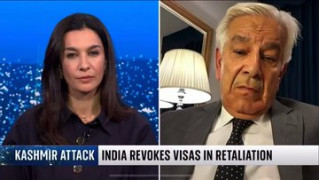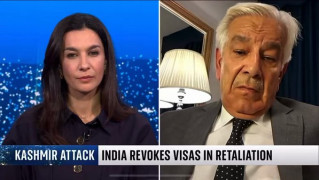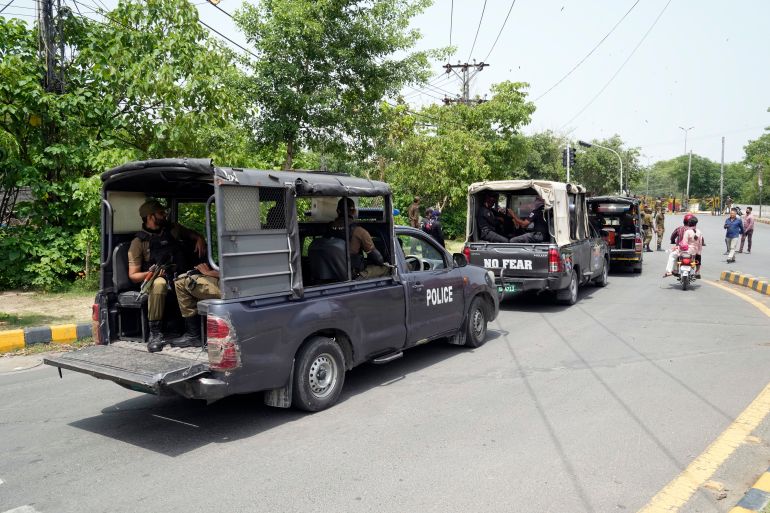nepali.nationalist
Chief Minister (5k+ posts)
Indian cities on lockdown before guru's rape trial verdict

With tens of thousands of followers camped along roads near the barricaded courthouse, police and paramilitary soldiers fanned out across the town of Panchkula and nearby areas.
The bearded guru, who calls himself Saint Dr. Gurmeet Ram Rahim Singh Ji Insan, has denied the charges of raping two of his female followers in the Dera Sacha Sauda sect.He took to Twitter ahead of the verdict to say he would appear in court despite a backache.
"We have always respected the law," he said, asking his followers to maintain peace.
Nishu Rani, 20, who traveled to Panchkula with 20 family members from the neighboring state of Punjab, said they came to support the spiritual leader.
They joined thousands of men and women, some with children and babies, who had spread out blankets and bedsheets and settled down to wait for the verdict. The sect claims to have 50 million members, promotes vegetarianism and campaigns against drug addiction.
"People who throw away their girl child, or abandon them, guruji is adopting those girls and treating them as his own daughters," Rani said. "Why would someone like him do something so heinous? That is why we are here to support him."
The case was being tried in a special court run by India's top agency, the Central Bureau of Investigation.Fearing violence in the event of a guilty verdict, some 6,000 police and paramilitary had spread out in Panchkula alone, with thousands more were on standby or deployed to nearby areas including the neighboring city of Chandigarh.
Police were testing drones to use for aerial surveillance and had water cannons at the ready. Three sports stadiums have been set aside in Panchkula and Chandigarh to act as makeshift prisons in case violence breaks out, police said.
Chandigarh also sealed its borders for the next two days to prevent any mayhem from spilling over.Religious sects like the Dera Sacha Sauda have huge followings in India. It's not unusual for leaders of these sects to have small, heavily armed private militias protecting them.Clashes in 2007 between the Dera Sacha Sauda followers and members of the Sikh faith left at least three people dead in north India.
In 2014, six people were killed when followers of another religious leader, guru Rampal, fought pitched battles with police who were attempting to arrest him for contempt of court after he repeatedly failed to appear in court in connection with a murder trial.On Thursday, police were searching vehicles entering Haryana state, where both the court house and the guru's ashram are located, and were turning away people who were carrying food and bedding as if they meant to join the courthouse crowds.
Local officials asked schools, colleges and offices to close on Thursday and Friday. Public transport was also shut down in and around the town.
Source

The Associated Press
FILE- In this Wednesday, Oct. 5, file 2016 photo, Indian spiritual guru, who calls himself Saint Dr. Gurmeet Ram Rahim Singh Ji Insan, arrives for a press conference ahead of the release of his new film "MSG, The Warrior Lion Heart," in New Delhi, India. Several cities in north India were under a security lock down Thursday ahead of a verdict in a rape trial involving the controversial and hugely popular spiritual leader. (AP Photo/Tsering Topgyal, File)
With tens of thousands of followers camped along roads near the barricaded courthouse, police and paramilitary soldiers fanned out across the town of Panchkula and nearby areas.
The bearded guru, who calls himself Saint Dr. Gurmeet Ram Rahim Singh Ji Insan, has denied the charges of raping two of his female followers in the Dera Sacha Sauda sect.He took to Twitter ahead of the verdict to say he would appear in court despite a backache.
"We have always respected the law," he said, asking his followers to maintain peace.
Nishu Rani, 20, who traveled to Panchkula with 20 family members from the neighboring state of Punjab, said they came to support the spiritual leader.
They joined thousands of men and women, some with children and babies, who had spread out blankets and bedsheets and settled down to wait for the verdict. The sect claims to have 50 million members, promotes vegetarianism and campaigns against drug addiction.
"People who throw away their girl child, or abandon them, guruji is adopting those girls and treating them as his own daughters," Rani said. "Why would someone like him do something so heinous? That is why we are here to support him."
The case was being tried in a special court run by India's top agency, the Central Bureau of Investigation.Fearing violence in the event of a guilty verdict, some 6,000 police and paramilitary had spread out in Panchkula alone, with thousands more were on standby or deployed to nearby areas including the neighboring city of Chandigarh.
Police were testing drones to use for aerial surveillance and had water cannons at the ready. Three sports stadiums have been set aside in Panchkula and Chandigarh to act as makeshift prisons in case violence breaks out, police said.
Chandigarh also sealed its borders for the next two days to prevent any mayhem from spilling over.Religious sects like the Dera Sacha Sauda have huge followings in India. It's not unusual for leaders of these sects to have small, heavily armed private militias protecting them.Clashes in 2007 between the Dera Sacha Sauda followers and members of the Sikh faith left at least three people dead in north India.
In 2014, six people were killed when followers of another religious leader, guru Rampal, fought pitched battles with police who were attempting to arrest him for contempt of court after he repeatedly failed to appear in court in connection with a murder trial.On Thursday, police were searching vehicles entering Haryana state, where both the court house and the guru's ashram are located, and were turning away people who were carrying food and bedding as if they meant to join the courthouse crowds.
Local officials asked schools, colleges and offices to close on Thursday and Friday. Public transport was also shut down in and around the town.
Source
Last edited by a moderator:






























